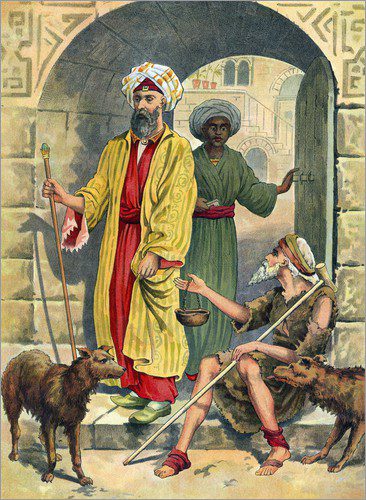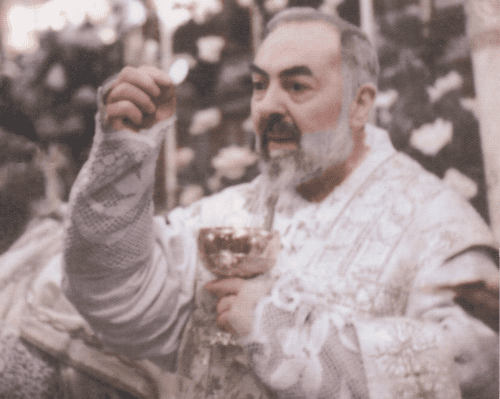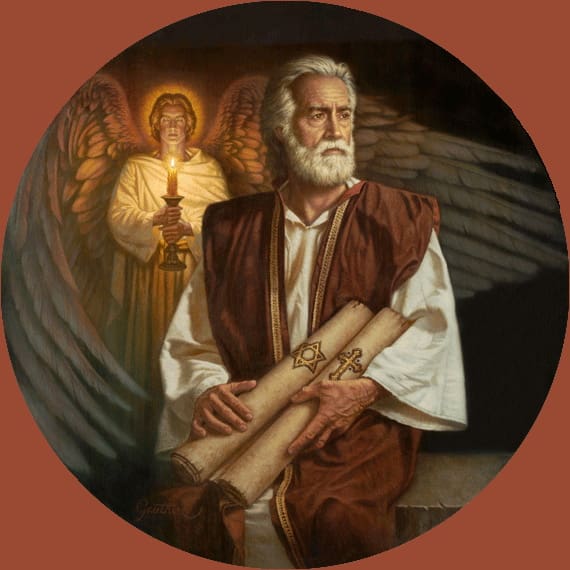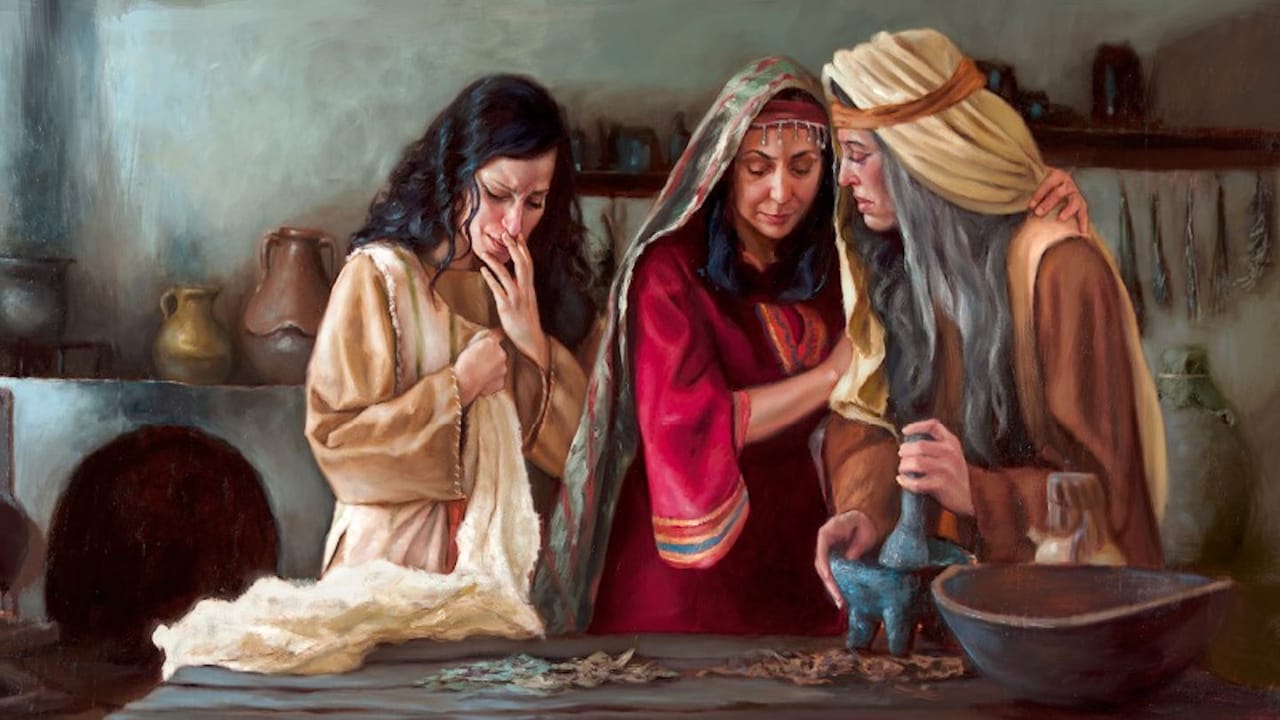
The readings this weekend are about faith and the Blessed Virgin Mary is one who we can turn to, as a model of faith.
Sometimes our cross or various difficulties make us question and wonder about our faith in God. There are times when we all doubt. When something goes wrong we may, in a moment of foolishness, say “God doesn’t care.”, or ask “Does God exist?”
In the first reading today the prophet Habakkuk cried out to God, “How long, Lord, am I to cry for help while you will not listen?” And In the Gospel the apostles asked Jesus, “Increase our faith.” What answer did they both receive? God said to Habakkuk at the end of our first reading, “...the upright man will live by his faithfulness.” In the Gospel, Jesus said, “Were your faith the size of a mustard seed you could say to this mulberry tree, ‘Be uprooted and planted in the sea’, and it would obey you.” We already have all the faith and we can always grow in our faith too. Faith is needed to help us overcome life’s problems.
The Catechism of the Catholic Church tells us faith is “the theological virtue by which we believe in God and believe all that he has said and revealed to us” (CCC 1814). To better understand what this means in practice, we can look at the life of Mary, whose acceptance of God’s invitation to be the mother of His Son is a great witness for us.
The Virgin Mary’s faith was greater than any human person. She made promise to God to be a virgin and never have children, which means She would never have any relations with a man. And yet, an angel appeared to Her and said She would become a pregnant and would be the Mother of the Most High. Remaining firm in Her commitment to be a virgin, She responded in faith saying, “Be it done unto me, according your word.” Who would believe that one could become pregnant, and yet never have relations. And not pregnant with anyone, but He who is the Son of the most high.
In faith, She traveled to visit Her cousin Elizabeth believing the words of the angel, that despite her cousin’s old age, who was pregnant and needed help.
In faith, Mary believed Her soul magnified the Lord and that every generation would call Her blessed, because He who is mighty had done great things for Her.
And look at the faith She had when Joseph found out She was with Child and wanted to quietly divorce Her. Because of Her faith, She believed God would help Joseph to believe and God did, by sending an angel to Joseph in a dream, telling Him that She had conceived by the Holy Spirit and He was to name the Child, Jesus.
In faith, Joseph and Mary traveled to Bethlehem, realizing they may not have an ordinary place to have the Child, if it would be His time be born. If faith, they believed God would take care of their needs away from home.
In faith, despite an elderly priest saying Her Heart would be pierced at the presentation of Jesus in the temple, She believed God would help Her endure Her future suffering, so the thoughts of many may be revealed.
In faith, Mary believed Joseph, when he told Her, an angel appeared to him in a dream, and that God wanted them to immediately leave and go to Egypt. In faith, She believed Joseph would need to find a job in a country, they didn’t know their language, but God would provide.
Again in faith, they believed the angel to return to their home country telling them that Herod was dead.
In faith, when Jesus remained in the temple at the age of 12, Mary believed She would find Her Son, though She searched for Him sorrowing for three days.
In faith, though Jesus did not work any known miracles for 30 years, during the time She lived with Him, yet, She believed would then work miracles during His public ministry.
By faith, Mary knew, Jesus can and would change water into wine to help the young couple at their marriage feast, during their first crisis of their marriage, when they ran out of wine.
In faith, She was not upset or disheartened when He was informed of Her presence outside a home and pointed to the crowd saying, “Whoever does the will of my heavenly Father, is my brother, sister and mother.” Out of humility, She knew Jesus was subtly pointing to Her as an example of always doing the will of His Father.
In faith, Mary would meet Jesus on the way of the Cross and then stand with Him as He endured His three hours of agony. Despite His death, She believed it was God’s will to allow it to happen and believed She would see Him again.
As She held Her dead Son in Her arms and helped place Him in the tomb, in faith, Mary believed Jesus would rise from the dead. And then was rewarded when Our Lord appeared to Her, first.
In faith, She understood She would be the Mother of us all, when John would take Her into His home and provide Holy Communion (the body of Christ, Her Son), for Her from the Holy Masses of John’s She attended. By faith, She believed by the power of the Holy Spirit, She would give Jesus, His body and blood, and by faith She believed Her Son would give Her, His body and blood in Communion at Mass through John, the priest.
In faith, with the Apostles, Mary saw Her Son, ascend into heaven and believed what He said, that He would return again on a cloud, the same way He went to heaven.
In faith, Mary waited and prayed for 9 days, in the upper room for the promised gift of the Holy Spirit.
In faith, She prayed for, encouraged, and gave advice to the Apostles and the early Church.
In faith, She went to Ephesus with John and lived with him there.
In faith, She returned to Jerusalem and believed Her Son would come to take Her to heaven, body and soul, as She said farewell to the Apostles before She fell asleep in the Lord.
And when She arrived in heaven, She did not need faith any longer, because it was through Her faith and Her hope, She passed from this life to the next. And now Her eternal and immeasurable love, shines for all in heaven and on earth, is a sign of hope for us, that some day we too, if we keep the faith, we will be with Her in glory.
Even though at times, if it seems God does not listen, or that God does not care, or that God does not answer our prayers, if we look at Mary, by faith, we believe God exists, God listens and God cares.
Like the prophet Habakkuk, we believe every upright person lives by their faithfulness. We believe, that as Jesus said, even if we have faith the size of a mustard seed, God will do marvelous things for us and through us.
By faith, we turn to Mary and ask Her for Her motherly intercession, because we believe Jesus cannot help but answer the prayers of His Mother, on our behalf.
So my friends, let us turn to Mary, as a model of faith, believe and trust, that as She who endured many dark and seemingly impossible situations, will help us and teach us, that God is with us, and will bring us to the joys of heaven. Amen.

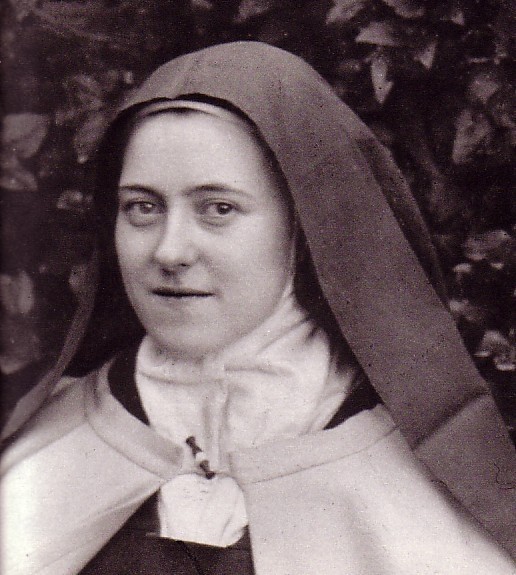
:format(webp)/f/84976/450x450/daec16bbcf/a-rebel-translator-in-a-biblical-era-st-jerome-index.jpg)

